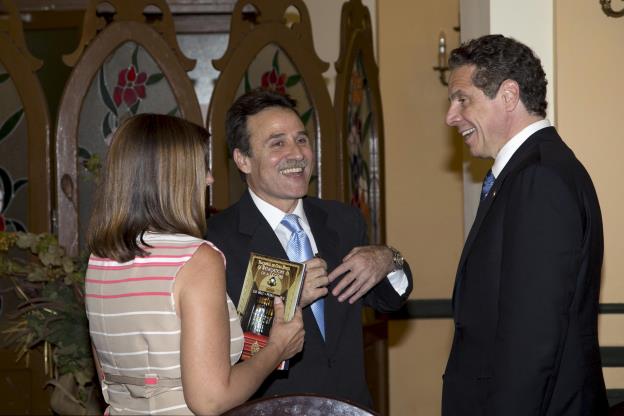Gov. Cuomo Visits Cuba, and What Could Be Wrong with That?
More on:

New York’s governor Andrew Cuomo has just returned from a visit to Cuba. The stated goal was to gin up business opportunities for New York companies. What’s wrong with that?
Let’s posit that foreign policy is made by the national government, and that the governor was merely trying to advance the new Cuba policy that President Obama has announced. Let’s posit that this is a good policy and that other American officials are right to support it. So what was wrong with this trip?
Two things. First, Gov. Cuomo is not a corporate executive whose job it is to maximize profits. He’s a democratically elected leader in a democratic country. Indifference to human rights is unbecoming at least, and in fact deeply offensive. But in his trip, Cuomo did not see one person who might be called a democratic or human rights activist. He saw Castro regime officials in event after event , plus the cardinal of Havana. Can one imagine that he would have visited the USSR in, say, 1985 and not seen Jewish dissidents, the refuseniks? Can one imagine him visiting apartheid South Africa and seeing only officials of the government? I don’t believe it for one second, so why is Cuba different? Why ignore the desperate struggle for freedom that so many Cubans have undertaken, and for which they have suffered and continue to suffer?
Second, Cuomo dined comfortably with a Cuban spy. As the web site Capitol Hill Cubans reported, the governor was seated next to Gustavo Machin Gomez, who was expelled from the United States in 2002 as part of the Ana Belen Montes spy case. Montes was the senior Cuba analyst at the Defense Intelligence Agency, and in 2002 was convicted of spying for Cuba and sentenced to 25 years in prison. The photo above shows the two men, Gov. Cuomo and the Cuban spy, laughing sociably. Other photos show them seated side by side at dinner. Machin is now a key figure in handling U.S. affairs in the Cuban foreign ministry, but is actually an official of the Directorate of Intelligence, as are many Cuban "diplomats."
There are only two possible alternatives here: the governor knew he was seated with a Cuban spy who had been expelled from the United States and did not care, or he did not know who Machin was. The first explanation is awful, but so is the second: it shows at the very least, as we say in Washington, "bad staff work." It’s no surprise that the regime wanted to seat him next to the spy, but did no one on the governor’s staff inquire about arrangements, or make any demands at all? Would it have been too much to say "hey, guys, don’t seat him next to any spies who’ve been ejected from the United States, please?" Or did the governor and his staff assume good faith on the part of the regime? That would be the most embarrassing conclusion of all.
It is reasonable for governors to follow the foreign policy set by the president, and reasonable for them to lead trade missions. But governors have many roles and responsibilities, and defending freedom and human rights is also one of them. “How do you foster the human rights dialogue that everybody says must progress?” the governor asked in a New York Times article. He then answered his own question: “It’s not through isolation, it’s through engagement.” But this must include engagement with people fighting for human rights, not just those abusing human rights. It must include meeting those demanding free elections, not just those denying them. The photos of the governor of New York laughing and toasting with a Cuban spy will demoralize the many Cubans who hope and work bravely for a free Cuba--and who have a right to expect politicians elected by free people in a democratic system to offer solidarity to them and not to their oppressors.
More on:
 Online Store
Online Store
